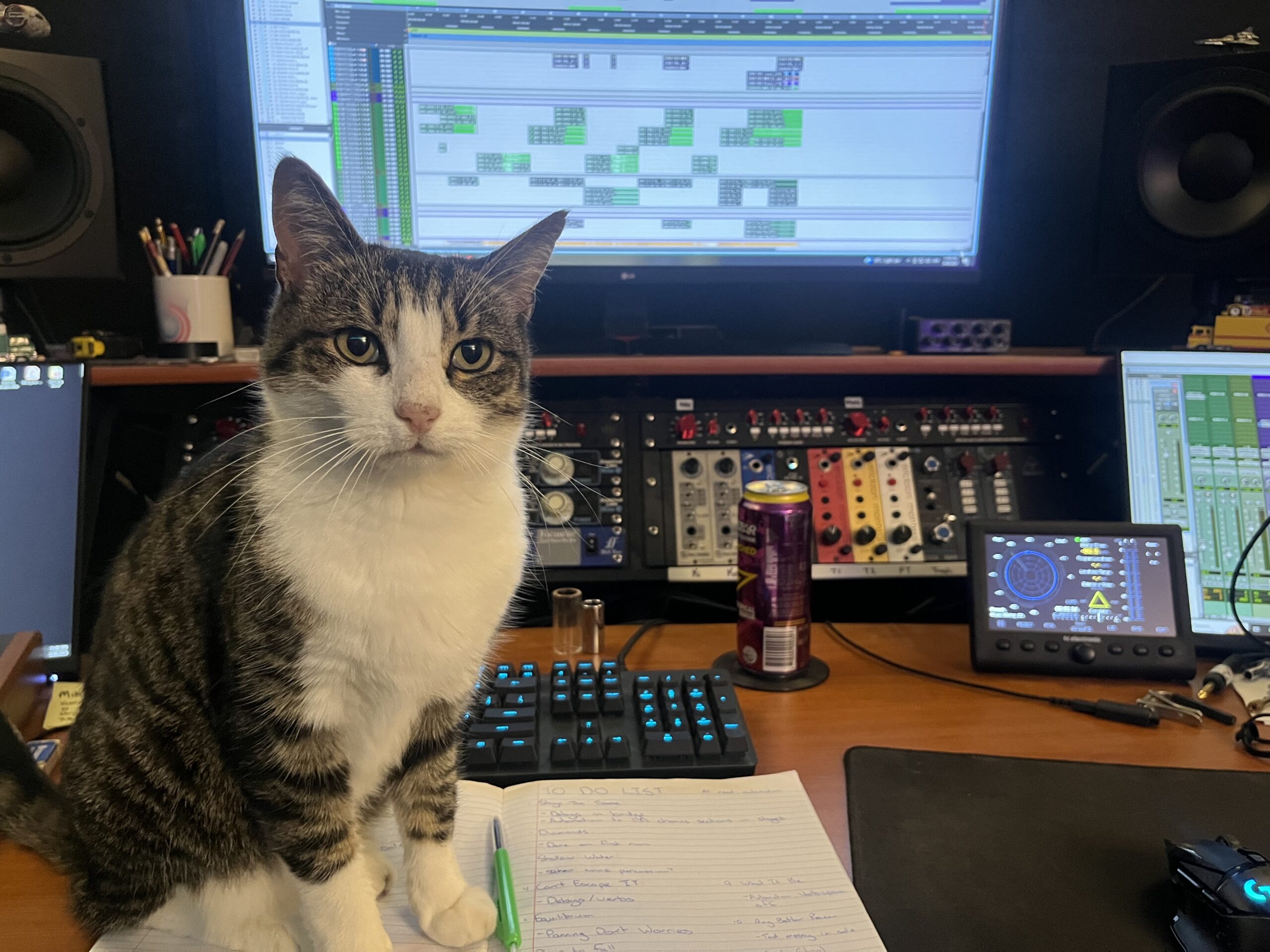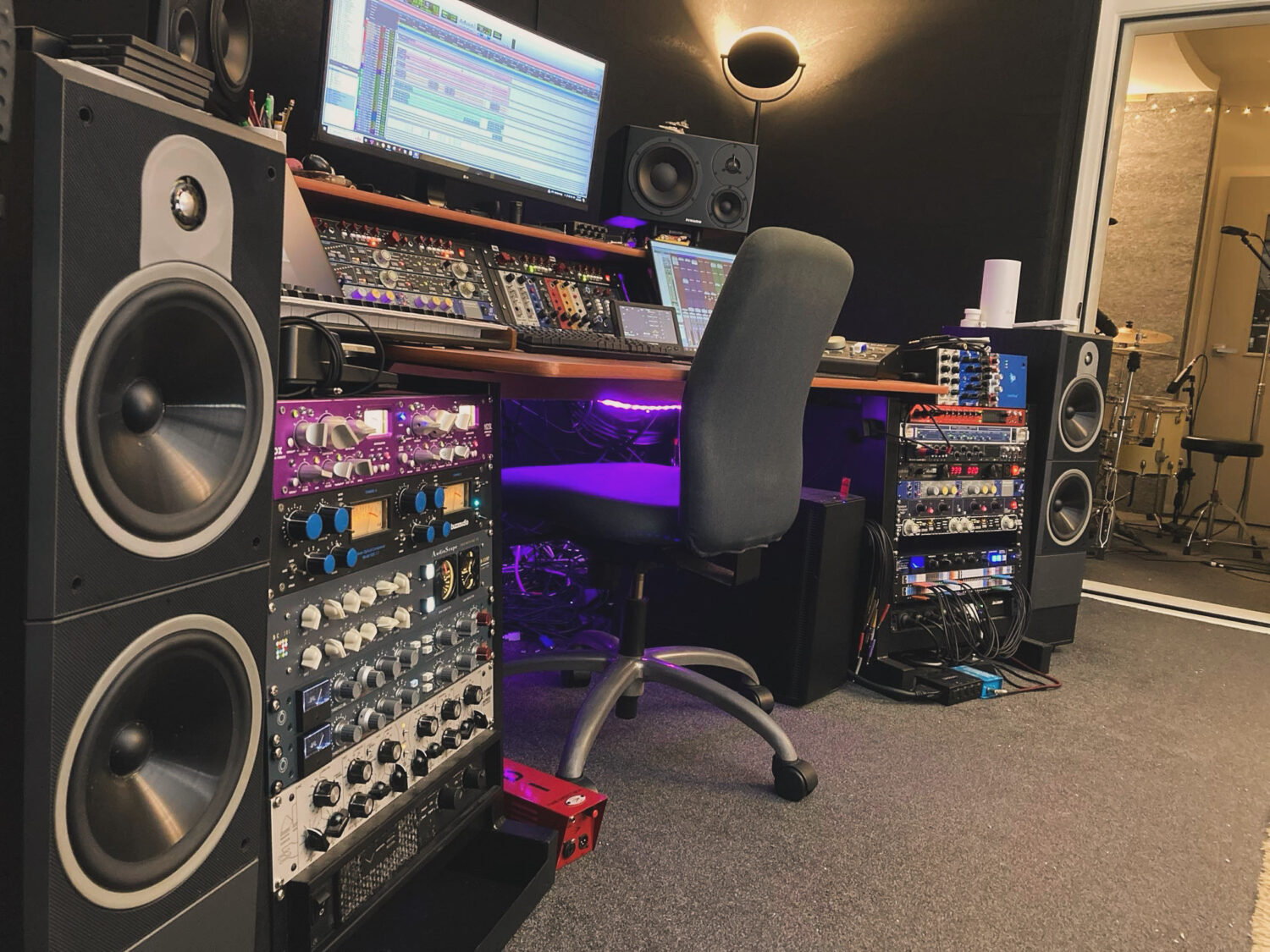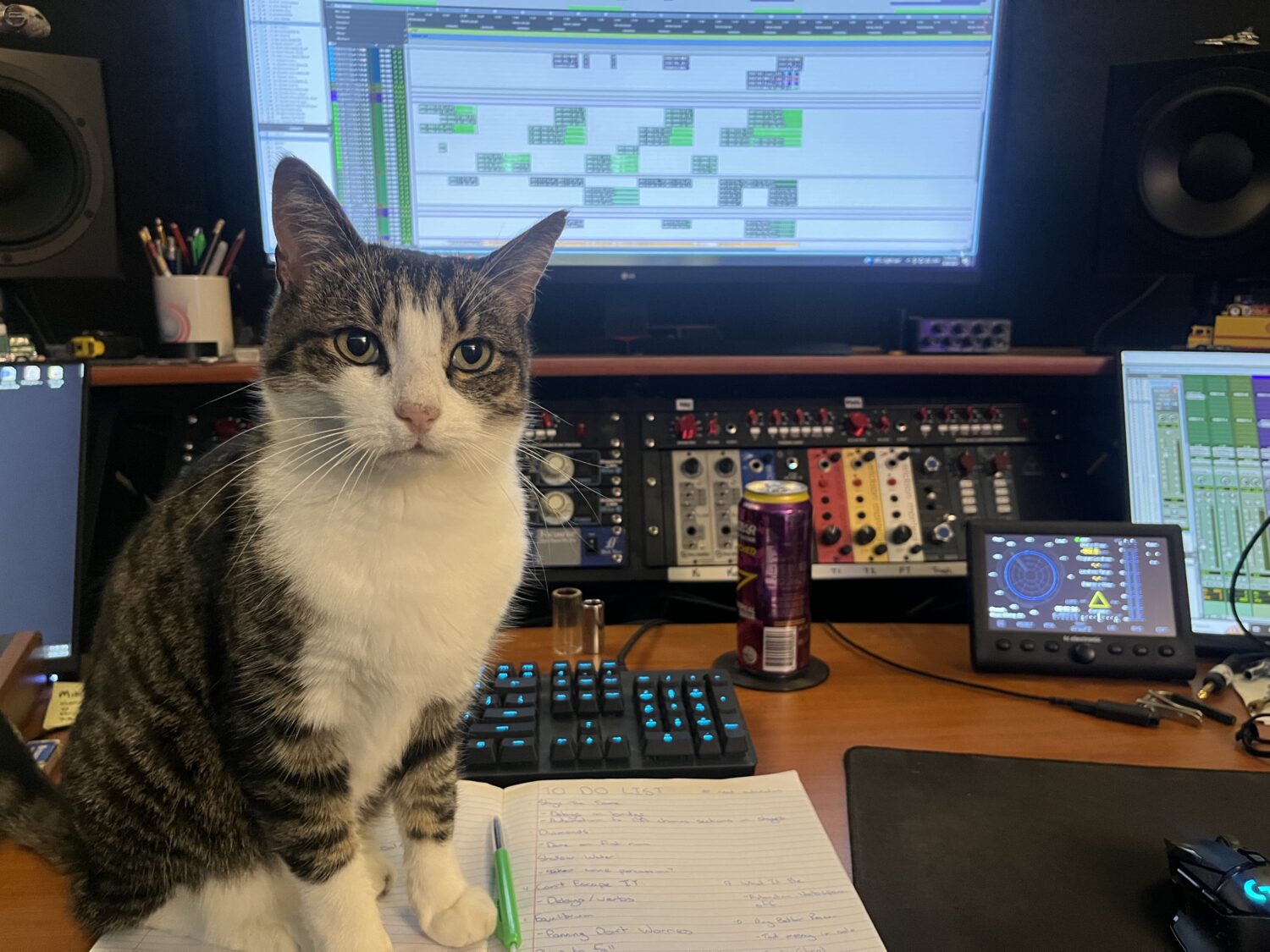
I have grown up around music my whole life. My father is a bass player so there was always music around the house during my childhood. I started off with guitar, and began to write my own songs just before I started Highschool. Once I began writing, my Dad pushed me to record my songs with our little audio set up. This sparked my interest in production and engineering in studios, and eventually our little audio set up became The Wardrobe.
My bedroom growing up was right next to our practice space for music. You have to walk through my room to get to it. Eventually we began to transition the space into a recording space, and the running joke became that I had a studio in my wardrobe. It’s quite funny watching people react to the studio we’ve managed to build after they have thought all this time it’s been in some guy’s wardrobe.

Learning to trust your ears. Sound is such a hard thing to nail down as everyone experiences in their own way. It’s subjective rather than objective, and it’s very easy to get in your own head about how something has turned out. I feel most people in creative industries can relate to that.
Not being prepared enough. It’s very easy to waste time re-recording parts because you didn’t rehearse them to the point of being comfortable playing them. Being well rehearsed removes a lot of stress for your first time in the studio, so you can focus on enjoying the experience and allow yourself to be more creative. I highly recommend new artists practice recording at home with a click track to get used to it before booking a studio.
This depends. Arguably the answer is a FLAC file or anything that is Lossless. However the experience of listening to music also is important. Putting a vinyl where you can’t skip the songs and experiencing the whole album on your couch with a nice drink can be better than listening to a FLAC file on an uncomfortable set of reference headphones. The important thing is how YOU enjoy music. Just don’t use spotify, it sounds terrible and they don’t pay your favourite artists enough.
All three. My goal is to take the idea that the artist has in their head and put it to paper. Sometimes that involves adding things to the image, slightly changing something or helping the artist come up the pathway to reach their desired sound. It’s a fun way to be creative, as you get to work with really cool ideas and see them to fruition in a variety of ways.
Often a song ends in a completely different place from when it’s started. I’ve seen songs grow into something completely different throughout the recording process as people start to picture what they had in their heads and figure out what compliments those parts well. It’s like any creative process, it’s prone to evolving. It’s not like reciting a song front to finish. You really get to break down the individual components of a track and refine the way they sound and how they interact with each other.
Being a sound engineer is not just about pushing buttons and turning dials. It’s about extracting a good performance from the artist. You almost have to be a Performance Psychologist. You have to find language that the artist responds well to and makes them feel comfortable in the studio. You have to find ways to allow the artist to fully express themselves, and I find that I am constantly finding ways to describe what they should maintain or change in their performance.
It depends on the artist I’m working with. I’ve had the pleasure of working with some very experience artists who have their sound completely figured out. In that situation, my mostly focus on being a Sound Engineer. In cases where the artist is still developing their sound or wants my input as a producer, I find myself shaping the sound in a way that I feel compliments the strengths in their music
A good place to start is a good demo of your songs with a rough form and individual tracks. It will save you a lot of time in the studio, as you can immediately begin recording your final parts, rather than having to build cue tracks from scratch. Have your parts well rehearsed, so you can enjoy the experience in the studio rather than stressing about your performance.

I was working on a track “Around The Corner” with The Rvmes. One of the band members brought a whole box of Dr Peppers, so we must have had like 3 or 4 each over the day. For some reason we decided to record opening a Dr Pepper for a bit of a laugh, added it to the start of the track, and found ourselves really liking how it fit. So it stayed on the track, despite us recording it for a joke.
There are so many good ones. I am fairly new to the industry so I would feel so incompetent recording them, but I love Crowded House. Their songs have so much layers to them, and I think that would be really fun to work with in the studio.
A mix of both. I have a few personal projects I am working on, and have a few artists in the Folk/Blues genre which I am really looking forward to working with.
Something to do with Game Design. I love the idea of coming up with concepts and mechanics for games that mix a good level of skill expression and fun. Whether it’s tabletop, video games, or board games. It’s something I’ve always found fascinating.
Whilst I have grown to appreciate elements of 3, Age of Empires 2 will always be King. The fact it is still getting expansions after being out for almost 27 years really shows how beloved the game is.
You can find me on instagram at @wardrodrobestudionz, or email me at wardrobe[email protected]
Columns4 months ago
Columns4 months ago
Columns4 months ago
Columns6 months ago
Columns4 months ago
Columns4 months ago
Columns4 months ago
Columns6 months ago